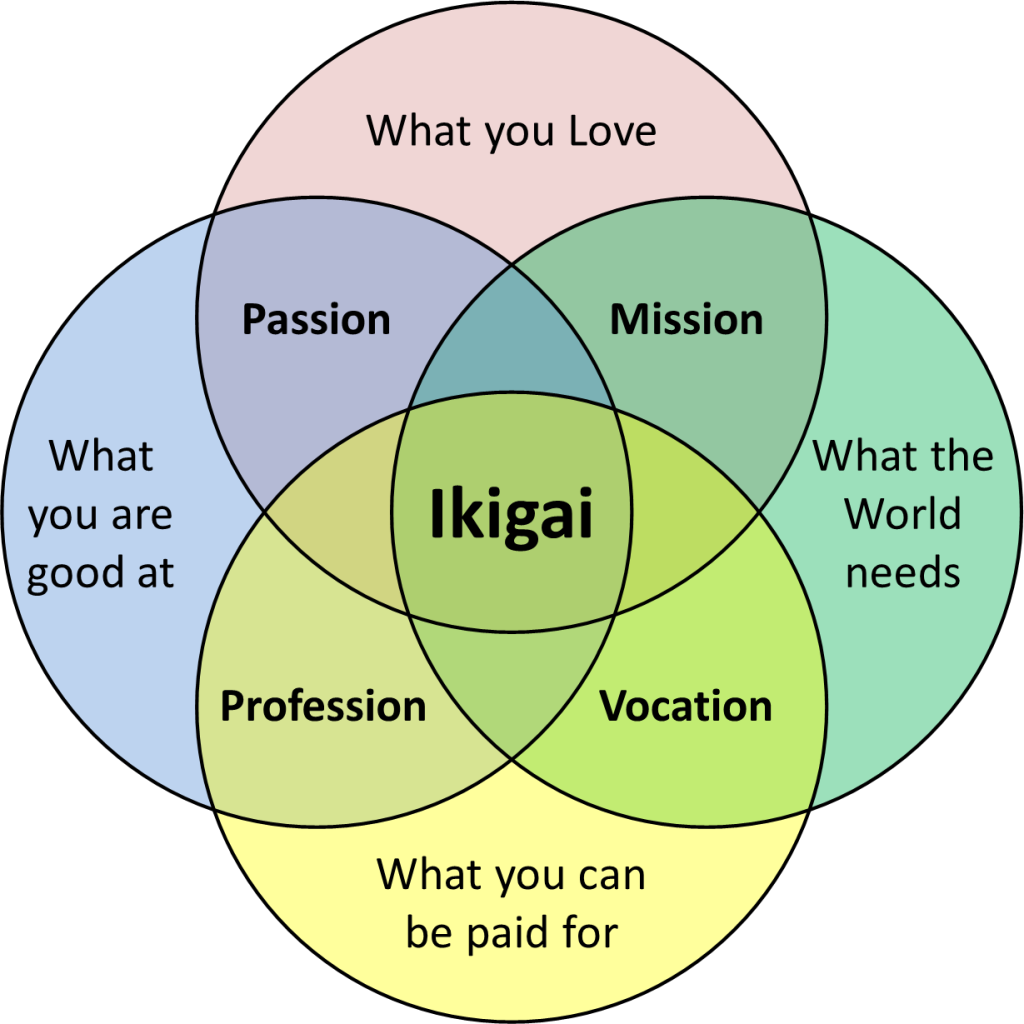While scrolling through Instagram, I came across a post by @businessgrowthmentor about 7 Eye-opening Japanese Concepts That Will Transform Your Life. The 7 concepts are:
- Ikigai: Discover your purpose in life, the reason you wake up. Choose what aligns your strengths, passions, and needs of the world.
- Shikita ga nai: Let go of what you cannot change. Focus on what you can.
- Wabi-sabi: Peace in imperfection. Nothing in life is perfect or fair. Find joy in the imperfections that make life colorful.
- Gaman: Preserve your dignity during tough times. Show maturity and self-control even when challenged. Be patient, resilient, and understanding.
- Oubaitori: Don’t compare. Everyone has a different timeline and unique path. Focus on personal progress rather than trying to measure ourself against others.
- Kaizen: Always seek to improve in all areas of your life. Even small changes add up.
- Shu-hai-ri: When the student is ready the teacher will appear. When the student is truly ready the teacher will disappear (Tao Te Ching). This describes three stages for acquiring knowledge:
a. Shu: Learn the basics from one master. Imitation.
b. Hai: Experiment, learn from other masters. Integration.
c. Ri: Innovate. Apply what you learn to other situations.
I happened to be thinking about purpose when I found this post, and so fixed my attention on the first. I am familiar with the others, and will get to them in time.
Ikigai comes from the Japanese “iki,” life, and “gai,” value or worth. Thus, what makes your heart sing, according to Steve Jobs. What makes you want to wake up in the morning and do it all over again, according to Chris Gardner.
The Japanese believe in “nuchi du takara,” i.e., “life is a treasure.” They believed that each person had a unique purpose in life, and that by discovering and fulfilling that purpose, one could achieve a sense of fulfillment and happiness.
But Japan’s rapid economic growth in the 1960’s, left many people feeling disconnected from their traditional values and sense of purpose. Ikigai offered a way for people to reconnect with their inner selves and find meaning in their lives, not just in Japan. Ikigai spread rapidly to the West, which was also looking for connection.
Ikigai is depicted today as consisting of four elements arranged as a Venn diagram. The intersection of what one loves, what one is good at, what the world needs, and what one can be paid for, is one’s ikigai. Fill up the spaces, that’s the exercise. This diagram will, of course, look different for each individual.

I think, however, that very few people can or should live their ikigai. Most doors are closed, the windows too. Most of us do what we do because we have to. We need to put food on the table — what the family needs.
But, you can love what you do. You can be good at any job, especially if you had no choice. You can get paid, somehow. Surely there’s at least one person out there who needs the product of your work. Still, it is not necessary to have all these elements settled in order to live not a happy life, but a meaningful one, a purposeful one.
And maybe you will find your ikigai and even live it, but with a much lower salary.
Do you really think life scripts ever unfold as planned? It only takes one aneurysm. But even as they make you change your script, tragedies also trigger discoveries . You might discover strengths you never had, or that the world had certain needs you took for granted. We might be thankful for such tragedies, in time.
Still, trying to discover your ikigai while you are healthy can teach you things that are useful right now. That, I think, is its beauty. The following “rules” for achieving ikigai might not actually bring you there, but they are wise and worth following.
- Stay active and don’t retire: Keep your mind and body active and engaged in meaningful activities throughout your life.
- Take it slow: Find a balance between rest and activity, and don’t rush through life without savoring the present moment.
- Don’t fill your stomach: Practice moderation in eating and avoid overindulging in food or drink.
- Surround yourself with good friends: Cultivate positive relationships with people who uplift and support you.
- Get in shape for your next birthday: Take care of your physical health and aim to improve it over time.
- Smile: Practice gratitude and positivity, and find joy in the small things.
- Reconnect with nature: Spend time in natural settings, appreciate the beauty of the world, and respect the environment.
- Give thanks to your ancestors and teachers: Honor and appreciate those who came before you and taught you important lessons.
- Live in the moment: Embrace the present and let go of regrets or worries about the past or futur
- Follow your ikigai: Discover your passion, mission, vocation, and profession, and strive to integrate them into a meaningful and fulfilling life purpose.
Find fulfillment in ‘striving’.
(Q.C. 230301)